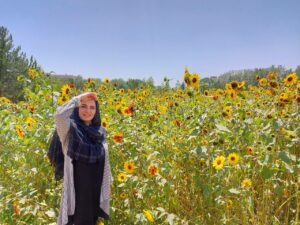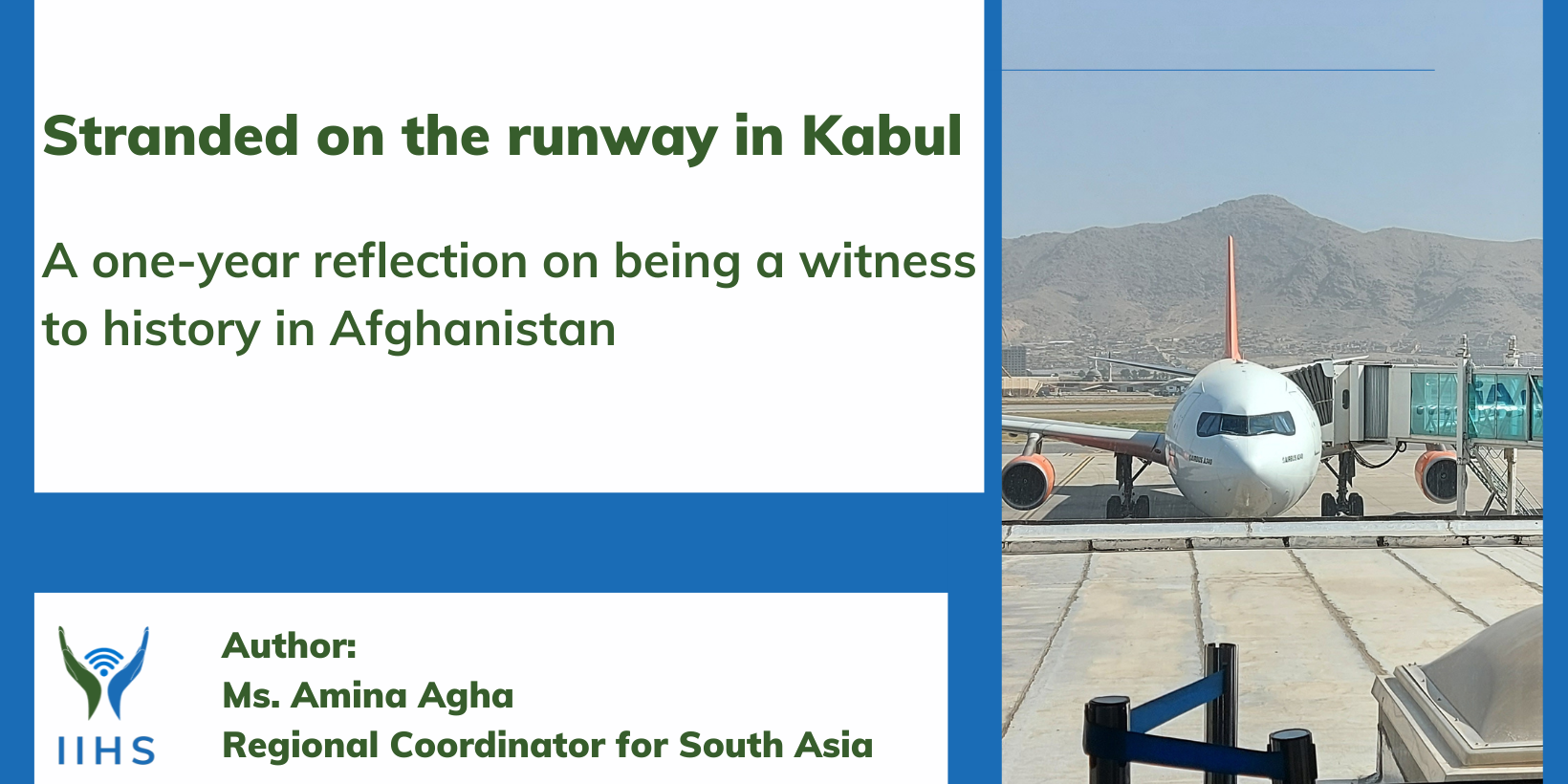Stranded on the runway in Kabul
A one-year reflection on being a witness to history in Afghanistan
Part II
The man sitting next to me was a Pakistani, a CTO in a bank in Afghanistan. All this while he sat with his head down and eyes closed. He spoke briefly and apologized for not being able to have a conversation because he was so worried. He said his daughter was diagnosed with cancer, and therefore, he mostly works remotely. He had only come back to Kabul a few days ago. There were several announcements that indicated we might be flying soon, and everyone sent messages back home every time that happened. And every time the permission was denied. In those moments of uncertainty, we were all equal, me with my dying phone battery, the men sitting in the front with their satellite phones, a CTO, a laborer. It didn’t matter. We all had one wish- to take off. Young Afghan boys who were in high spirits when they boarded the plane were now dreadfully quiet. I thought I kept it together for the most part. But when I thought of my family, I wanted to cry. I had decided to go back because of them. And it seemed that it didn’t quite serve the purpose. I was told the President had fled the country and that there was chaos outside. I was one of the last group of people who saw the airport functioning normally on the last commercial flight out of Kabul on Sunday.
When the pilot announced around 4 pm that we were ready for take-off, the guy next to me asked if he could use my phone to message his family. Another guy asked for the same. My battery was nearly dead and I had reserved it just enough to contact my family when I landed. Those split seconds in life test us to see to what extent we can lend a helping hand. They used my hotspot to leave messages for their families. I was doing the same, but then phone signals were jammed. And the plane stopped again. At that moment, we were all so disappointed and so fearful of what might happen next that no one uttered a word. Not even a disappointed sigh. We took off twenty minutes later, and those twenty minutes drained me of all the physical and emotional strength I had managed to reserve so far. But we had finally flown out and soon after; the pilot announced that we were in Pakistan’s airspace.
We got out just in time before all mayhem broke loose, shops were looted, and an emergency was declared at Kabul airport. In the absence of security forces, the Air Traffic Control staff also left their positions, and the other PIA evacuation plane that took off nearly an hour after we did, was told by ATC to take their own decision to fly as they were leaving their positions. The pilot immediately took off, following two US fighter planes ahead of the national carrier.
I landed around 6 at Islamabad Airport with a dead phone and hundreds of Afghans in immigration lines. After a lot of struggle in finding someone to borrow a phone, I called mom to tell her I have landed. I was sapped of all energy after standing two hours in the immigration lines. A BBC reporter was standing next to me and helping out Afghans who were clueless on how to fill out immigration forms.
One year later, I am still uncertain of what lies ahead in terms of the political future of Afghanistan. God gave me the chance to go back to the city I loved and meet my colleagues before I could finally say good-bye to them. Most of them have left for other countries in hopes of a better, more prosperous future for their children. Nothing else has changed. Humanitarian needs have only multiplied since I was last there. Every statistical number we see on the news is an individual story, an individual journey. Some of which I have known personally.
The new shift in the current security and political landscape of the country has laid bare the stark reality of decades of war and ensuing challenges of civilian casualties, contracted displacement, and poor socio-economic indicators. Compounded with drought leading to unprecedented food insecurity and lack of access to basic emergency humanitarian assistance for food, shelter and protection, the majority of the Afghan population is barely hanging by a thread to survive. More than 90 percent of Afghans have been suffering from some form of food insecurity since last August. Half the population is in “crisis-level hunger or worse”. The need of the hour is that all parties respect International Humanitarian Law and commit to principled humanitarian action. It is imperative that an enabling environment is created and maintained for the provision of unimpeded and secure access for humanitarian assistance to the vulnerable population. Development priorities need to be re-defined and suspended development programs need to be resumed so that innocent people don’t pay the price of the crimes they did not commit.
Human Security Now mentions “helping countries recover from violent conflict [is] one of the most complex challenges confronting the international community.” The Commission on Human Security (CHS) stresses on the inadequacies of tackling threats to human security through conventional mechanisms alone. Intricate linkages between development, human rights and national security need to be considered while developing an integrated, context-specific, people-centered response to address the unique challenges in Afghanistan. All lives are equal and all lives matter. We must act, before more lives are lost, and more dreams perish in the eternal darkness of Afghan conflict.
The IIHS is a convener, collaborator, and advocate for six areas of human security: good governance, food security, climate protection, the Responsibility to Protect indigenous rights, women, migrants, and modern-day slavery as tools to meet the UN 2030 Sustainable Development Goals (SDGs).
About the writer
Ms. Amina Agha has around 15 years of experience working for the private sector and for humanitarian assistance programmes in emergencies and disasters in Pakistan and Afghanistan. She has worked with the Government of Pakistan on joint initiatives with UNICEF and UNFPA on gender-and child-centred DRR initiatives. Her core experience is around communications, policy and programme development and implementation for vulnerable groups. In Afghanistan, she was working as Advocacy and Communication Manager, leading ACBAR’s advocacy priorities amongst key stakeholders, including national and international fora, and the wider humanitarian community. She is working pro bono as Regional Coordinator for South Asia with IIHS since 2021.








